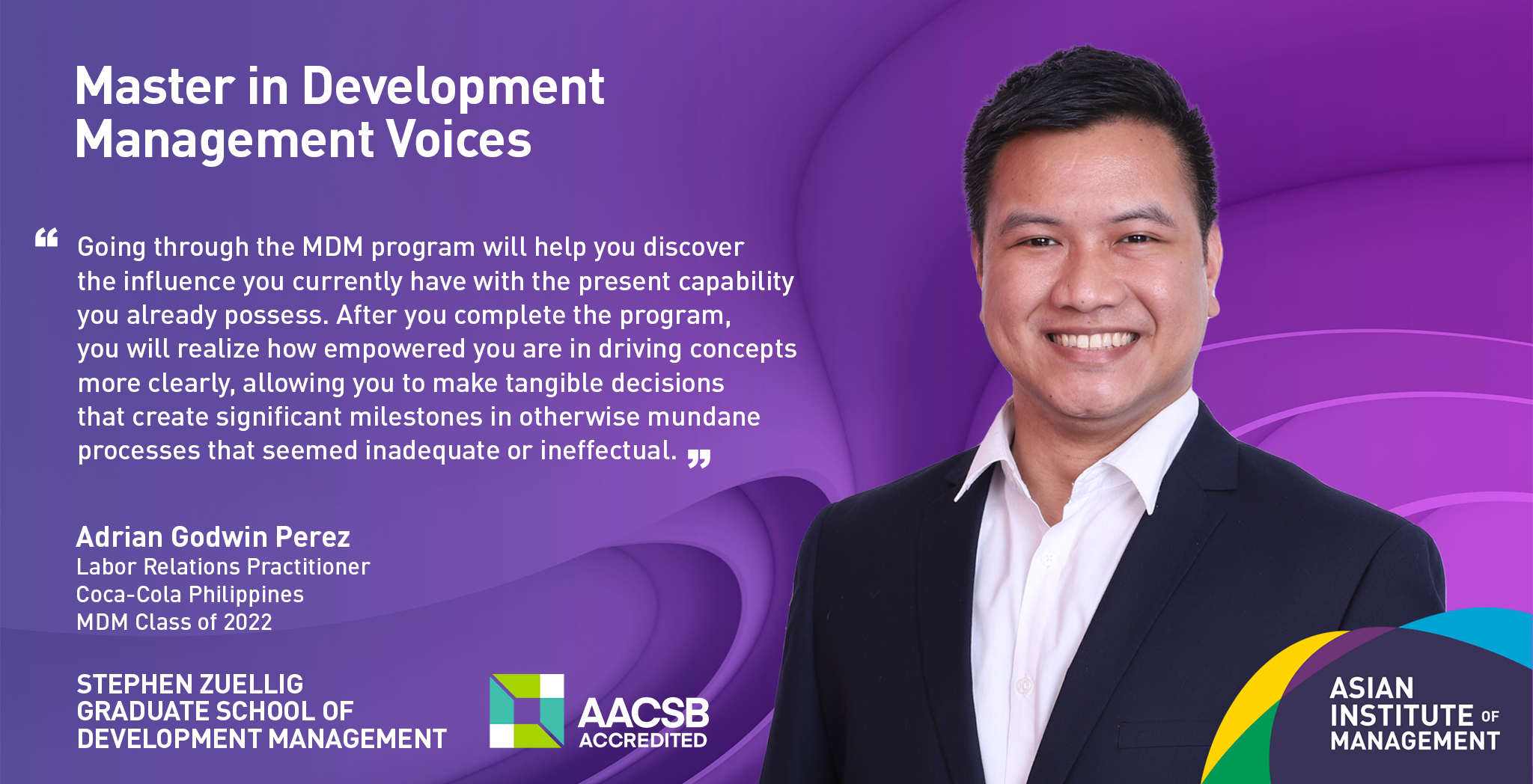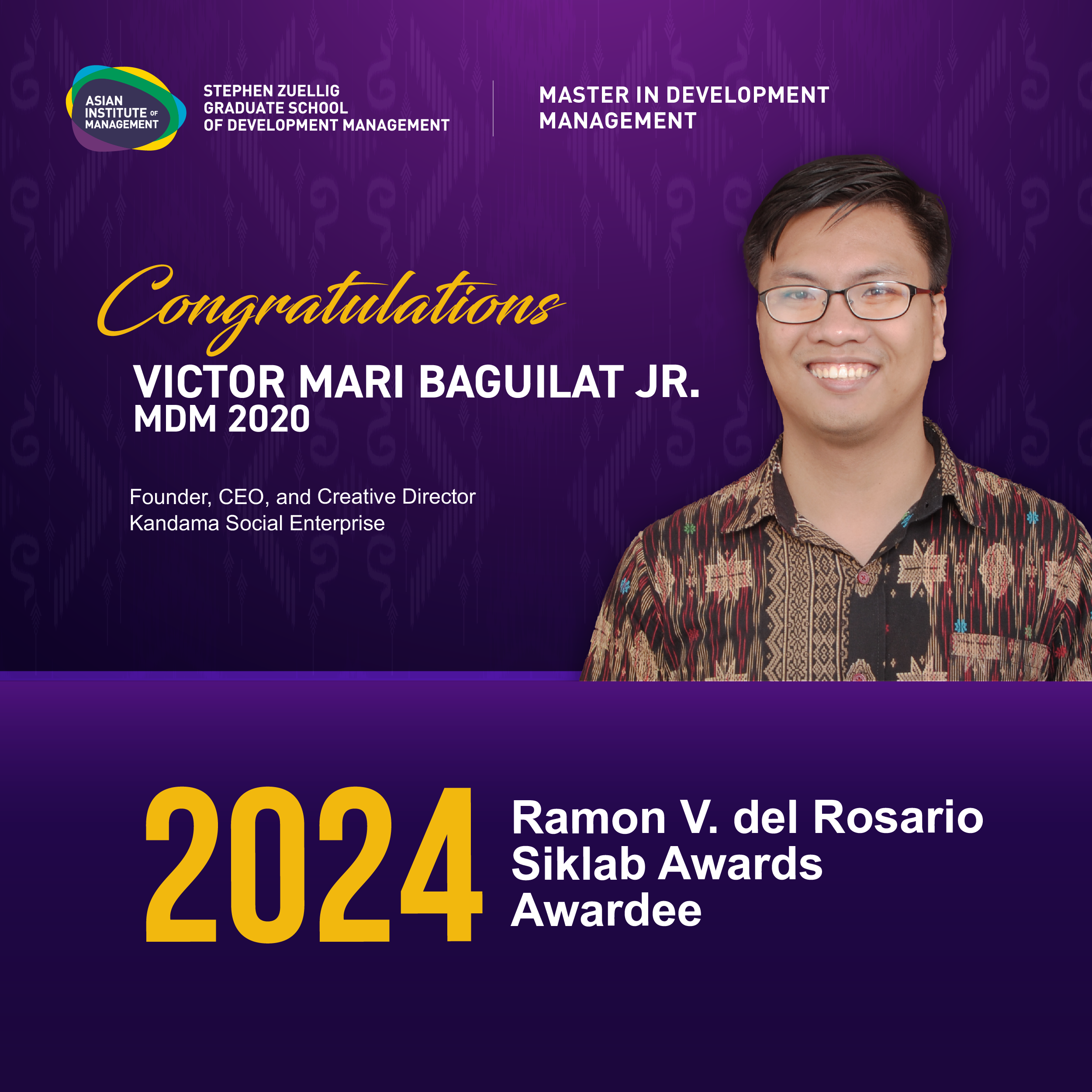I am Adrian, a Labor Relations practitioner for Coca-Cola in the Philippines. My work involves the delicate balance of managing employee and employer relations in the application of labor laws. This means that I represent the company before labor organizations whose personalities and interests may not always align with the company. I do find that that while there are areas of cooperation, most of the time, labor organizations are concerned about representing the sentiment of employees more than protecting the goals of management.
During this pandemic, however, I have been blessed to witness interaction that is unprecedented in Coca-Cola’s 110 years in the Philippines. Only a crisis could have borne the overwhelming admirable performance from our employees. While no one wished for such a global event, we find that the unique conditions uplifted spirits in a way that normal situations would not allow. We feel that the extensive listening, exhaustive planning, and relentless effort to navigate the challenges of the pandemic without a playbook helped us score a win for our employees as well as excel in the market.
I’ve always wanted to obtain an edge and have been looking for the perfect opportunity. AIM has always been on the top of my list of dream schools that would give me the necessary tools to succeed in life and at work. I was so right.
My father took up Strategic Human Resources in AIM and he encouraged me to take advantage of taking up graduate studies at the height of my career. I was torn about taking either an either an MBA or MDM. Even the interim academic program director was curious about why I chose MDM given my line of work. But I remain convinced that MDM would be the track that would help me realize my goals and enhance my skills in handling relationships, adopt a vast network of like-minded professionals, and understand the practical application of strategies that are aimed at scalable partnership impact. I was so attracted by the three areas of concentration: namely, social enterprise, policy and transformation, and impact-first investing. I felt so out of place and challenged while I got to learn new concepts that sharpen my skills for tomorrow.
MDM, When I first started, felt like it was about the public sector. But it could not be closer to what I know and love in my corporate work. It is the management of expectations, the identification of risks and gaps that are constant in the dynamic new world of work, but more importantly, it is in the empowerment of relationships to address needs in a structured and logical cognizance of existing ecosystems. It is through the eyes of a development manager that I appreciated my work more. My role in the company had become more important than ever. With the flipped classroom setup, where students become the primary source of interaction, and the application of the Harvard Case Study method, learning immediately makes concepts applicable. It has effectively set professionals like me on a path of renewed discovery for why we do what we do and how we can make a bigger difference in our areas of influence.
I am most fond of design thinking and systems thinking. These two approaches to understanding root causes of problems and the possible areas of leveraging outcomes and positive effect of the creation of products and services validate the work everyone in the cohort does. We are a cohort of very diverse fields, but we can relate to the call to action in a crisis to address the requirements of the changing world. I also appreciate the linkages efforts have to the Sustainable Development Goals. It made me realize that the role I have in my organization contributes to a greater purpose that society can replicate or use as a platform for bridging issues in industrial relations and decent work. I also sharpened foundational skills in Writing Management Communication and vital Human Behavior principles that make the most sense of why we respond the way we do in a crisis.
For future development leadership aspirants, know that your capacity for creating meaningful change isn’t limited to concepts that have fossilized due to the traditional way of doing work both in public and private practice. Going through the MDM will make you realize what great influence you can have with the current capability you possess. After your MDM, you will realize that you will then be empowered to drive concepts more clearly, you will make tangible decisions that create significant progress in otherwise mundane processes you feel did not have effects before.
Being an impact leader means you navigate relationships aimed at cooperation, you realize the necessary linkages to ensure each stakeholder drives contribution, and your new-found appreciation for our interconnection in an ecosystem helps you utilize collaboration in defining better ways of working at every layer of society. You need only delve more deeply and view relationships as critical stages of development to make sure they evolve into meaningful conversations and effective leverage points of opportunity, and be aware of your current level of influence and what you still require to develop your leadership capital.






